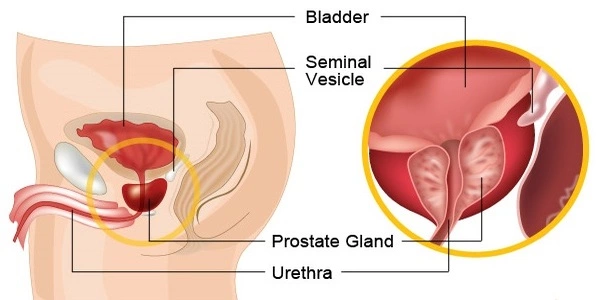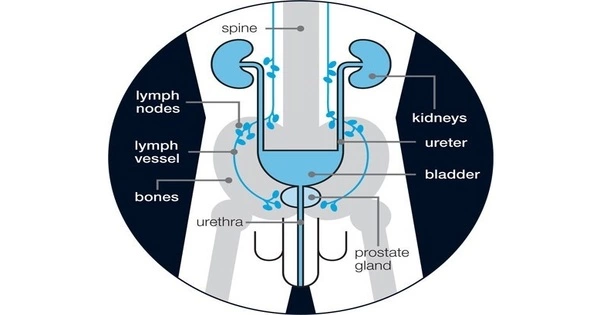Prostate cancer begins when cells in the prostate gland start to grow uncontrollably. The prostate gland is a small gland located in the male reproductive system that produces seminal fluid to nourish and transport sperm.
In most cases, prostate cancer begins in the gland cells of the prostate. It may develop slowly, and initially, there may be no signs or symptoms. However, as cancer grows, it may spread to other parts of the body, including the lymph nodes and bones.
Researchers have made an important discovery about the early stages of prostate cancer. According to a new study, the prostate as a whole, including cells that appear normal, differs in men with prostate cancer. It implies that tissue cells all over the prostate are primed and ready to develop prostate cancer. This means that it may be preferable to treat the entire prostate rather than just the cancerous areas. The researchers hope that their findings will help scientists better understand the causes of prostate cancer and, ultimately, prevent it.
Researchers at the University of East Anglia have made an important discovery about the early stages of prostate cancer.
The samples we studied included tissue from cancer as well as tissue from elsewhere in the prostate that appears normal under the microscope. This generates a massive amount of data, and by using a large amount of computer power, we can determine the differences in the DNA, providing insight into how cancer grows.
Prof Brewer
According to a new study published today, the prostate as a whole, including cells that appear normal, differs in men with prostate cancer. It implies that tissue cells all over the prostate are primed and ready to develop prostate cancer.
This means that it may be preferable to treat the entire prostate rather than just the cancerous areas. The researchers hope that their findings will help scientists better understand the causes of prostate cancer and, ultimately, prevent it.
Prof Daniel Brewer of the University of East Anglia’s Norwich Medical School, who led the study, stated: “Prostate cancer is the most common cancer in men, claiming the life of one man every 45 minutes in the United Kingdom. When men are diagnosed with prostate cancer, it is common to find groups of cancer cells in more than one location within the prostate. We were curious if this was due to changes in ‘normal’ prostate cells throughout the prostate.”
Cancer is caused by mutations in DNA, the genetic code of life, which occur in every cell. The researchers examined the DNA code in 121 tissue samples collected from 37 men with and without prostate cancer.

“The samples we studied included tissue from the cancer as well as tissue from elsewhere in the prostate that appears normal under the microscope,” Prof Brewer explained. This generates a massive amount of data, and by using a large amount of computer power, we can determine the differences in the DNA, providing insight into how cancer grows. We discovered that ‘normal’ prostate cells in men who had prostate cancer had more mutations (DNA changes) than ‘normal’ prostate cells in men who did not have prostate cancer.”
“Based on the genetics of the samples analyzed, we created maps to understand where the different mutations occurred. And we showed that in most men, the mutations in normal cells are different to mutations in cancer cells. The ‘normal’ prostate cells in men who have prostate cancer appear to provide a beneficial environment for prostate cancer cells to develop and grow.”
“In other words, the whole prostate is primed and ready to develop prostate cancer driven by an, as yet unknown, biological process. This work has improved our knowledge of how prostate cancer first starts to develop and might one day give us clues as to how to prevent or treat it. And it shows that it may be better to treat the whole prostate rather than only the areas in the prostate that have cancer,” he added.
According to Dr. Hayley Luxton, Senior Research Impact Manager at Prostate Cancer UK: “This groundbreaking new study demonstrates for the first time how normal cells in the prostate can aid in the growth and spread of prostate cancer. The researchers discovered that normal prostate cells in men with prostate cancer have specific genetic changes that cause them to behave like rich compost, creating an ideal environment for prostate cancer cells to grow and develop. These findings provide important new insights into the early stages of prostate cancer, which may one day provide us with clues as to how to prevent it.”
















